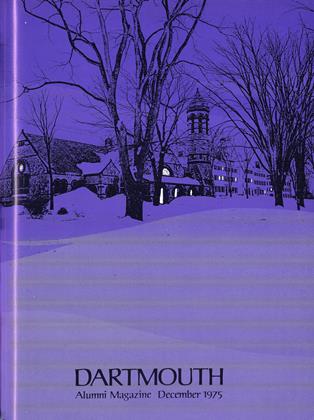When you encounter this book, you will be eavesdropping on a conversation. The participants are Ego and Alter, a professor and a student. You as reader may be called Alter-Ego. All three are supposed to get to know one another; and, to a degree, they do.
Ego, as I have come to know him, is a very scholarly man. His bibliography, from Aboud to Zeidel, is 28 pages long. Alter, a more introspective type, prefers to allude to what he remembers, although on page 232 he is allowed to quote from one of Ego's less treasured volumes. Ego also has aesthetic interests:
I look at the beauty of the scene in front of me, as I write here in the South Tyrol. You certainly like to talkabout the South Tyrol, don't you? Yes - and I designate the objects I see as church, houses, trees, mountains, grass, snow, men in blue aprons.
And human concerns:
Outside my window ... I see a boy about six and his father. The father is scything a field; the boy is trying to rake clover together ... Both of them are wearing blue aprons, a symbol of Tyrolean patriotism to be displayed aggressively before the Italians since the region is part of Italy. What can I say about the boy without speaking to him? From the expression on his face, from the eagerness with which he works, I believe he must have a deep affection for his father... he must want to be like him, an ambition he can achieve by wearing similar clothes and learning to be a good peasant.
Both Ego and Alter are academic psychologists, and this Alter-Ego happens to be an academic philosopher, more accustomed to eavesdropping on the philosophic dialogues of Plato, Anselm, Berkeley, and Hume than to a psychological causerie. This may explain why I find that both Ego and Alter take philosophy and theology too seriously:
Now to your objection. As my thoughts swirl throughthe history of philosophy ... And I assume your reference is primarily Western philosophy, although occasionally you also include some great thinkers of the Middle and Far East ... First, new values actuallydo arise, it is part of the profession of philosophers andtheologians to invent or discover ... them.
And yet not seriously enough:
The vast majority of persons are not creative like the philosophers or theologians to whom you quietly allude: they have neither the time nor the desire to create new values ... A good library may contain books spilling over with the wisdom of the ages, but... most values from the past are rejected or ignored. We do not find many Americans applying Christ's or Kant's standards....
Quite a number of Americans do try to employ Christian and Kantian standards, and even Nietzsche didn't claim to invent or discover new values; he just wanted in his dialogues to turn old values upside down, and in this he was very successful.
So is Professor Doob in demonstrating that pathways from people do not really meet the pathways to people, even though they crisscross.
PATHWAYS TO PEOPLE. ByLeonard W. Doob '29. Yale, 1975.320 pp. $17.50.
As Dartmouth Professor of Philosophy, Mr.Scott-Craig taught courses in Aesthetics andRecent Continental Philosophy and an advancedseminar in Heidegger and Merleau-Ponty.
 View Full Issue
View Full Issue
More From This Issue
-
 Feature
FeatureQuite Contrary
December 1975 By SAMUEL PICKERING -
 Feature
FeatureThe Assault On Quebec
December 1975 By LEWIS STILWELL -
 Feature
FeatureHigh On Your Dial
December 1975 By DAN NELSON -
 Feature
FeatureDartmouth Radical Union
December 1975 By M.B.R. -
 Class Notes
Class Notes1959
December 1975 By DOUGLAS WISE, BARRY R. BLAKE -
 Class Notes
Class Notes1950
December 1975 By JACQUES HARLOW, EDWARD TUCK II
Books
-
 Books
BooksAlumni Articles
DECEMBER 1967 -
 Books
BooksOptimism Qualified
December 1976 By DAVID A. BALDWIN -
 Books
BooksWorking for a Cause
February 1977 By EVERETTW. WOOD '38 -
 Books
BooksECONOMIC DEVELOPMENT AND AMERICAN FOREIGN POLICY 1943-62.
FEBRUARY 1967 By HOWARD BLISS -
 Books
BooksFACULTY PUBLICATIONS
April, 1925 By Ray V. Leffler. -
 Books
BooksTHE JACKSONIANS: A STUDY IN ADMINISTRATIVE HISTORY
December 1954 By W. R. WATERMAN

